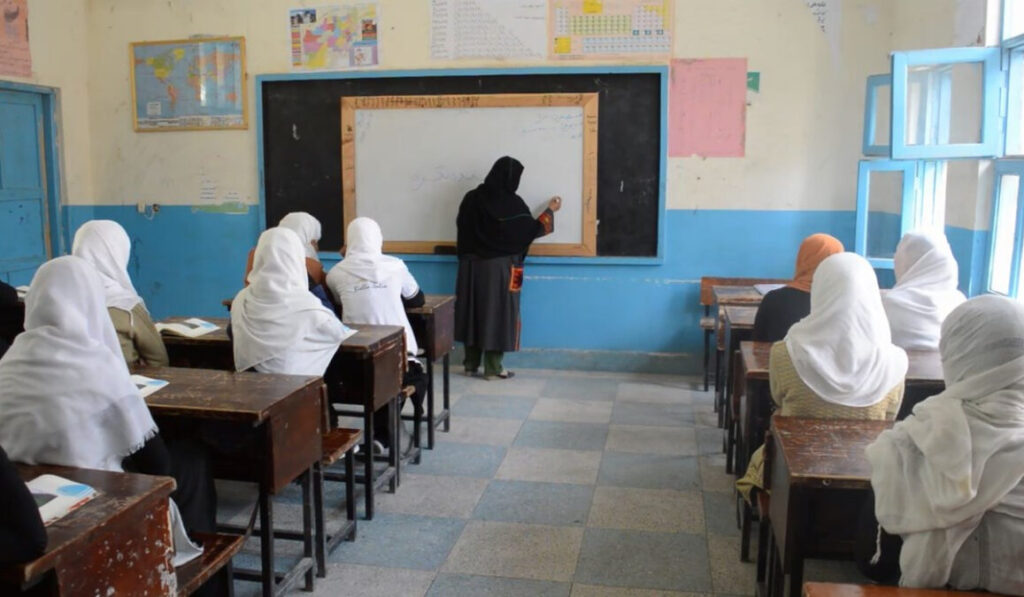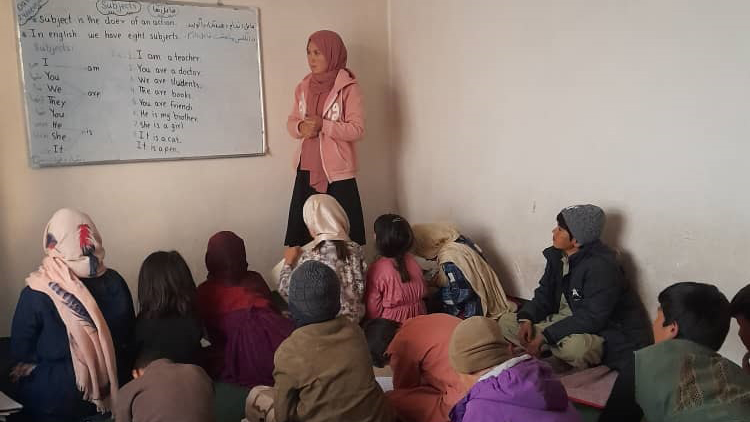UN experts, including Special Rapporteur Richard Bennett, on Monday, called on the Taliban to immediately reopen all secondary schools and places of higher education to girls and young women.
In a statement issued by the United Nations Human Rights Office, Bennet and his colleagues also called on the international community to “intensify calls on the Taliban” to reopen schools and places of education to girls and women; to fund equal and quality education for girls and boys, if schools are reopened, and to facilitate the flow of finances to support the formal education system.
Their statement comes just two days ahead of the start of the new academic year. Despite repeated claims by the Taliban that the closure of schools and education facilities to girls is only temporary, nothing has been said about girls returning to school on March 22.
Bennet and his colleagues said that “on 22 March 2023, schools should be reopening to girls across Afghanistan. Instead, it appears that for the second successive school year teenage girls will be banned from resuming their studies – making Afghanistan the only country in the world that forbids girls and young women from attending secondary school and places of higher education.
“Education is an enabling right, which is crucial in and of itself and for realizing other human rights such as the rights to work, to an adequate standard of living, to health, to participate in society and communities, to equality before the law and to fundamental freedoms. Denying this right to half the population effectively denies women and girls most other human rights,” their statement read.
The group of rights experts said the Taliban has no justification to deny the right to education, on any grounds, including religion or tradition.
“Being a state party to United Nations human rights treaties, notably the Convention on the Rights of the Child, the Convention on the Elimination of Discrimination Against Women and the International Covenant on Economic, Social and Cultural Rights (ICESCR), Afghanistan is obliged to respect, protect and fulfill the right to education without discrimination on the basis of gender or any other ground, irrespective of the authority in power,” their statement read.
The Taliban denied women and girls their right to education during their initial rule in the country between 1996 and 2001 and after seizing power for a second time in 2021, girls beyond Grade 6 were again denied their right to education.
Both times, the ban on girls’ education was introduced as a temporary measure. However, during the first period the ban was not lifted.
The statement noted that unless the Taliban fulfills its promises to reopen secondary schools and universities immediately to girls and women, “it must be concluded that they have no intention of doing so.”
Bennett and his colleagues warned that if the ban on education continues, life outcomes for girls in particular, but also for all children, “will continue on a negative trajectory and recovery will take decades. We cannot let this happen.”

They also said that the consequences of the ban are enormous and that already rates of child marriage and child labour have increased, as have reports of children being medicated to overcome hunger, and even dying from malnutrition.
“Even if the ban is reversed, we are concerned about the quality of education that will be provided for girls as well as boys,” they said adding that “disturbing reports from boys’ secondary schools highlight the replacement of qualified professional teachers with religious teachers, with significant changes in school curricula, and a limited provision of school subjects.”
They also condemned “in the strongest terms, the denial of education to women and girls, and accordingly call on the Taliban de facto authorities to immediately reopen all secondary schools and places of higher education to girls and young women.”
They also called for efforts to be intensified to ensure the education system provides quality education according to international standards for all girls and boys by securing qualified professional teachers, and ensuring that the school curriculum is up to standard.
In addition, they called for the girls in and around schools to be protected, once they return and for all restrictions on female employees of the education sector to be removed in order for them to continue their pivotal role in safeguarding education.
The UN experts who issued the statement are Richard Bennett, Special Rapporteur on the situation of human rights in Afghanistan; Farida Shaheed, Special Rapporteur on the right to education; Fionnuala Ní Aoláin, Special Rapporteur on the promotion and protection of human rights and fundamental freedoms while countering terrorism; Dorothy Estrada Tanck (Chair); Ivana Radačić (Vice-Chair); Elizabeth Broderick; Meskerem Geset Techane and Melissa Upreti – who are part of the Working Group on discrimination against women and girls.




